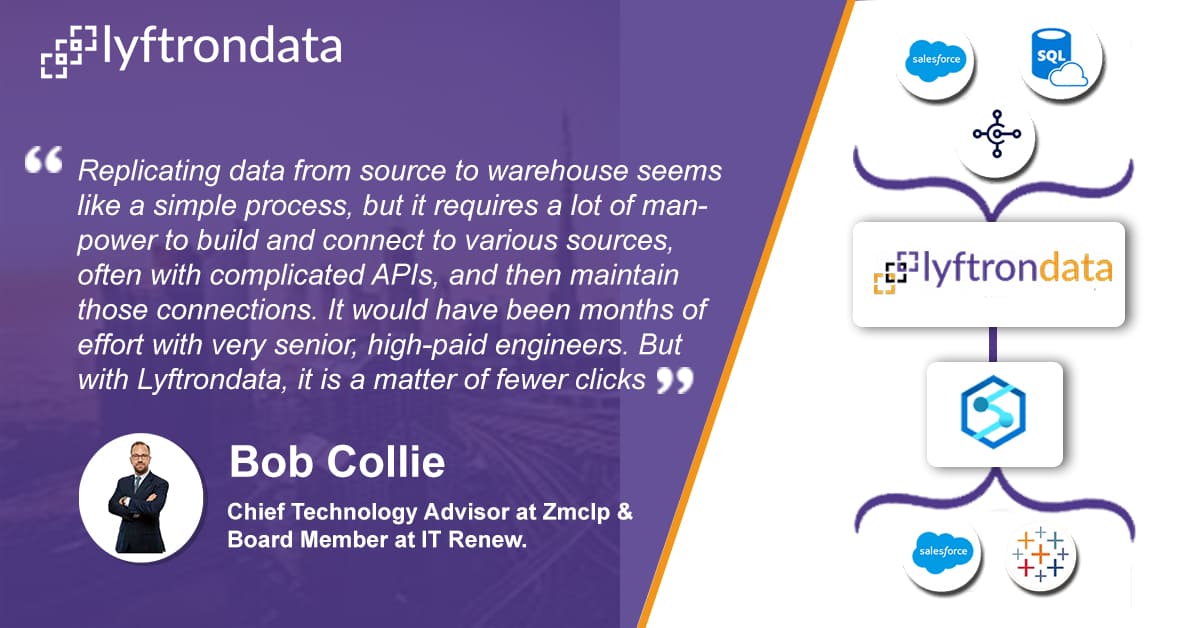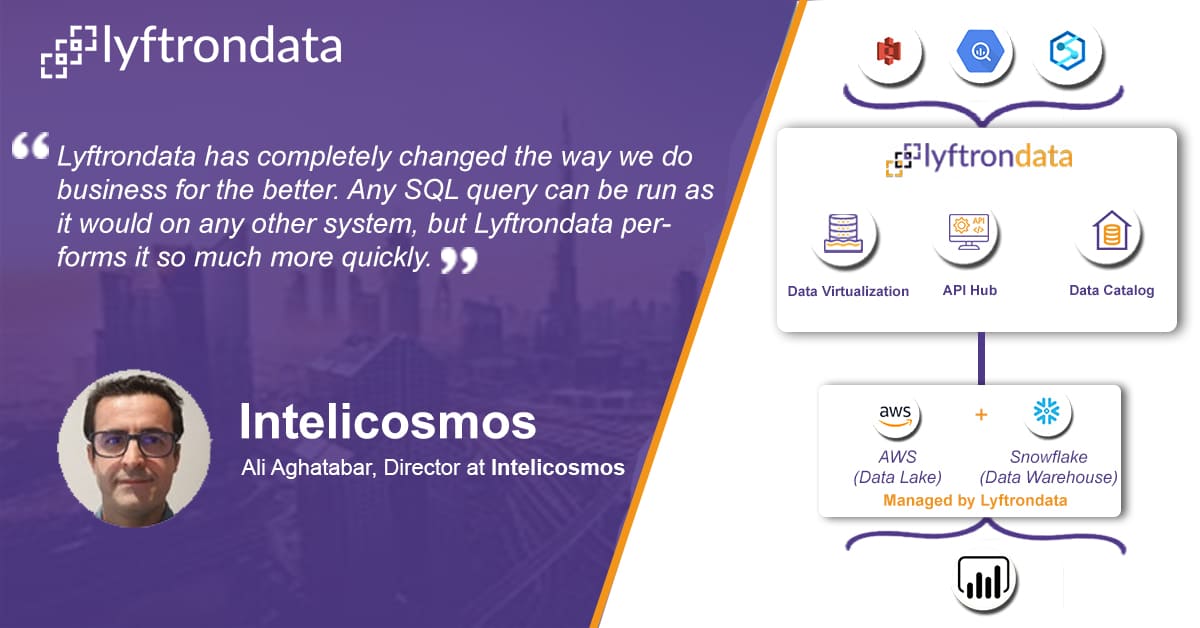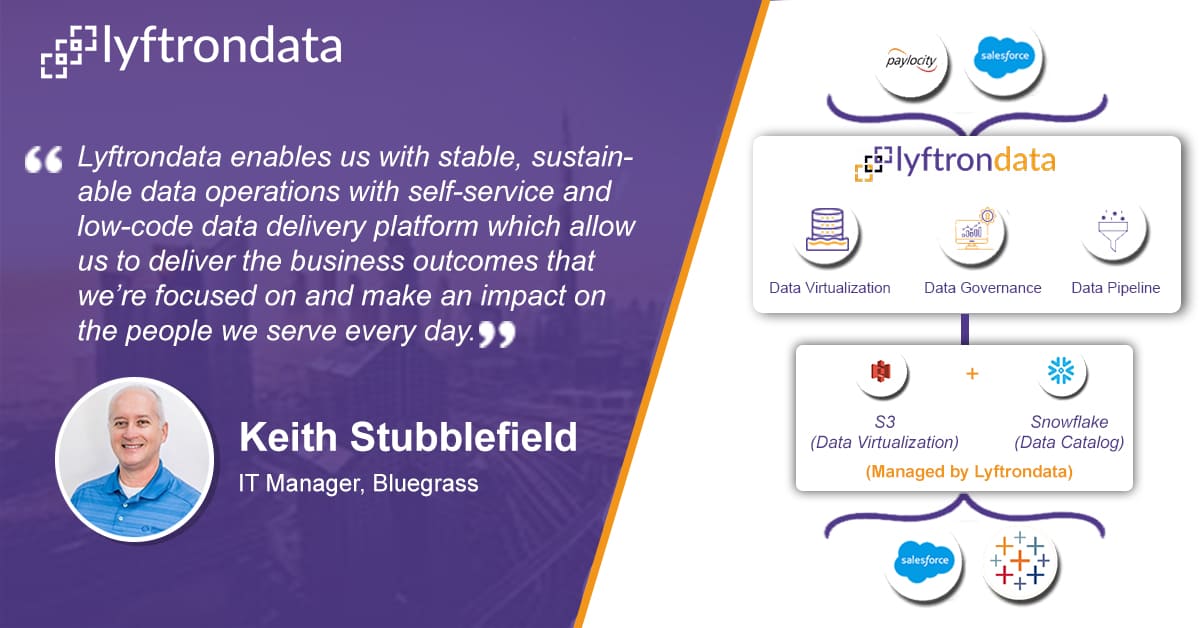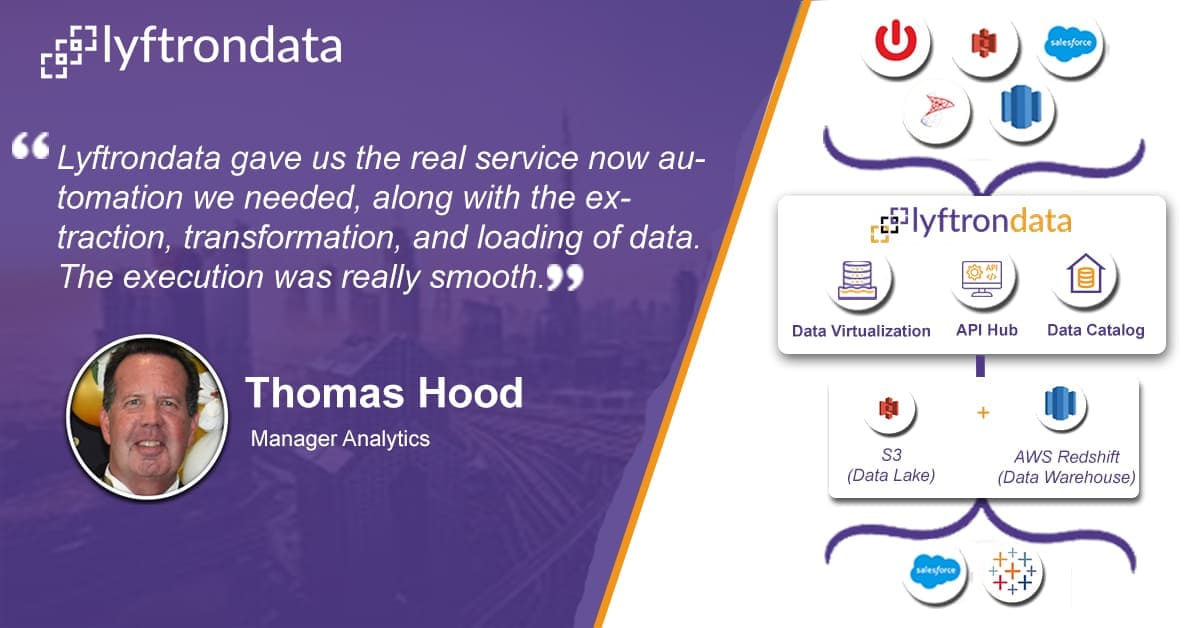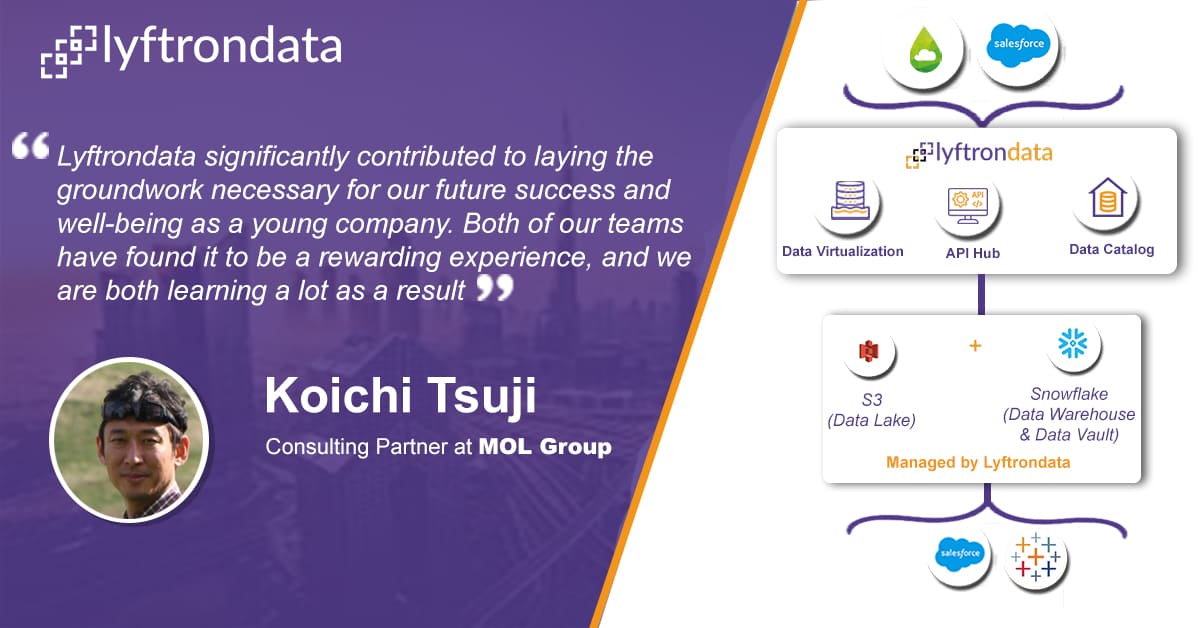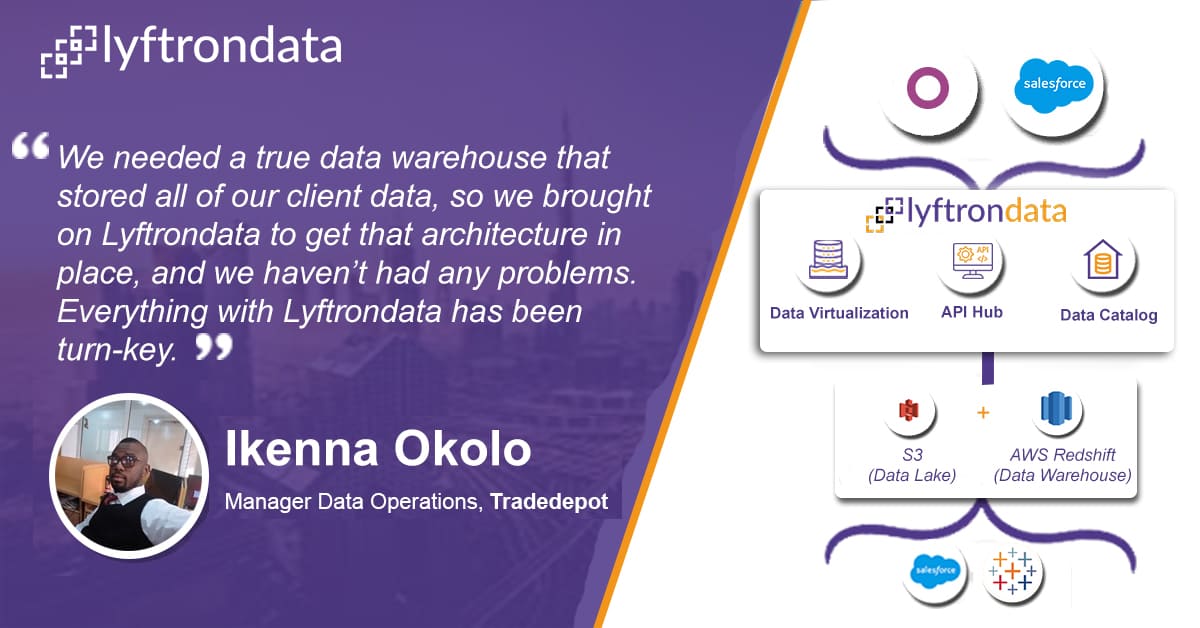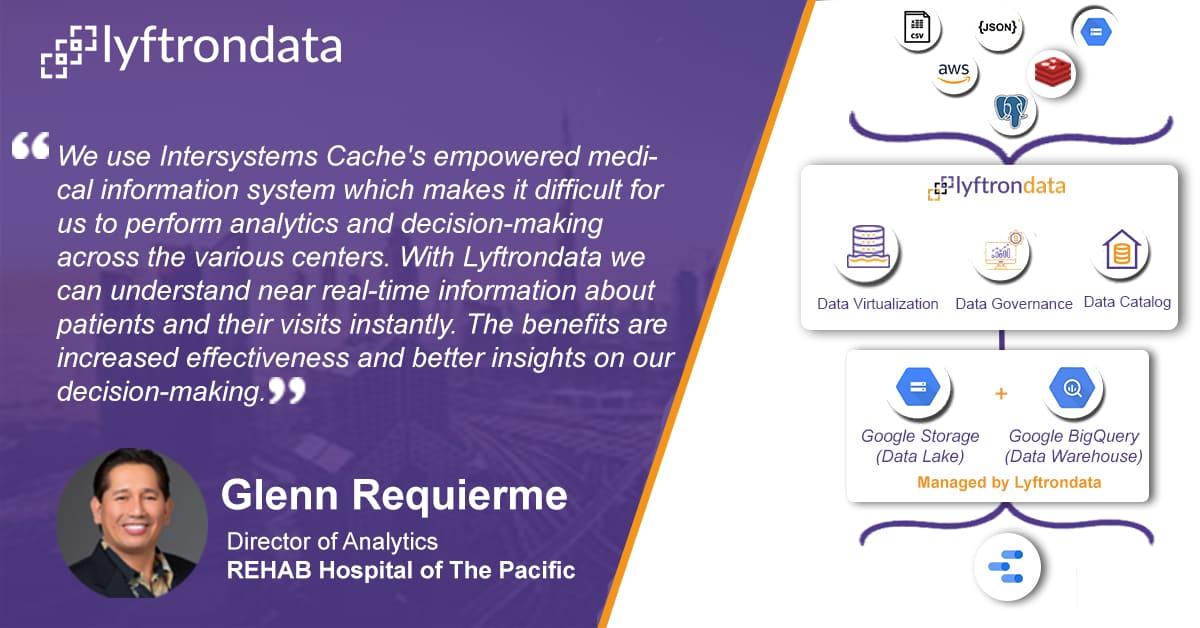200X Acceleration at
1/10th of the cost
Zero
maintenance
No credit card
required
Zero coding
infrastructure
Multi-level
security
Simplify HPCC System integration in
4 simple steps
Create connections
between HPCC System and targets.
Prepare pipeline
between HPCC System and targets by selecting tables in bulk.
Create a workflow
and schedule it to kickstart the migration.
Share your data
with third-party platforms over API Hub
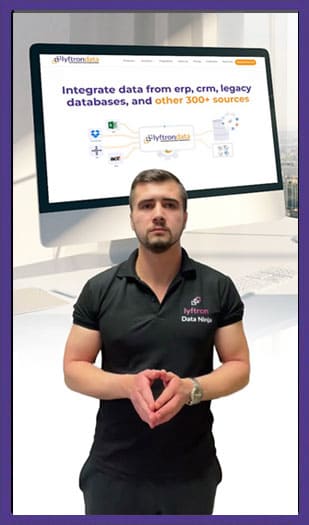
Why choose Lyftrondata for HPCC System Integration?
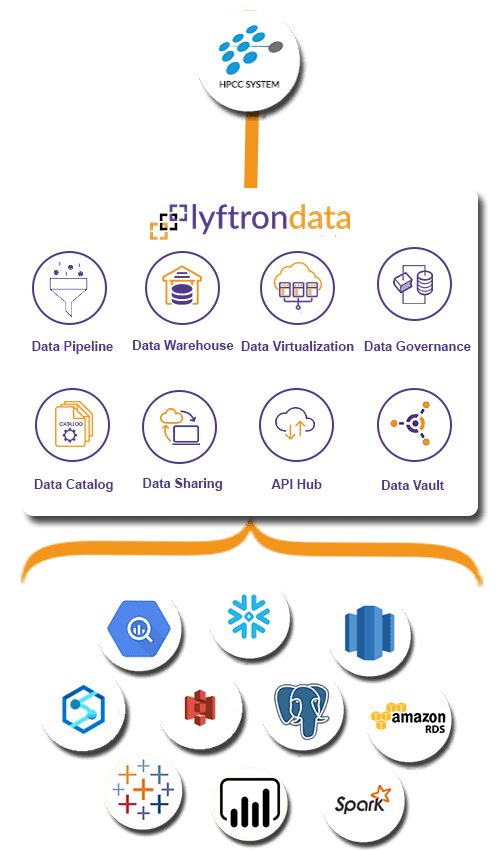

Simplicity
Build your HPCC System pipeline and experience unparalleled data performance with zero training.

Robust Security
Load your HPCC System data to targets with end-to-end encryption and security.

Accelerated ROI
Rely on the cost-effective environment to ensure your drive maximum ROI.

Customer's Metrics
Track the engagement of your customers across different channels like email, website, chat, and more.

Improved Productivity
Measure the performance of your team and highlight areas of improvement.

360-degree Customer View
Join different data touch points and deliver personalized customer experience.
Hassle-free HPCC System integration to the platforms of your choice
Migrate your HPCC System data to the leading cloud data warehouses, BI tools, databases or Machine Learning platforms without writing any code.
Hear how Lyftrondata helped accelerate the data journey of our customers
FAQs
What is HPCC System?
For high-performance, data-parallel processing and delivery for applications using big data, HPCC Systems Integration uses a software architecture that is implemented on common shared-nothing computing clusters.
What are the features of HPCC System?
Data management and analytics features: HPCC Systems Integration offers systematic data management and utilizing analytics features.
Including data profiling: HPCC Systems ETL includes data profiling.
Data cleansing: Data cleansing services can be utilized with HPCC Systems Connectors software.
Snapshot data updates: HPCC Systems Drivers tool offers snapshot data updates.
What are the shortcomings of HPCC System?
High-performance computing cluster: HPCC Systems Drivers tool has some clusters related to computing.
Licensing issue: There are certain licensing issues with HPCC Systems Connectors software.
Make smarter decisions and grow your sales with Lyftrondata HPCC System integration





